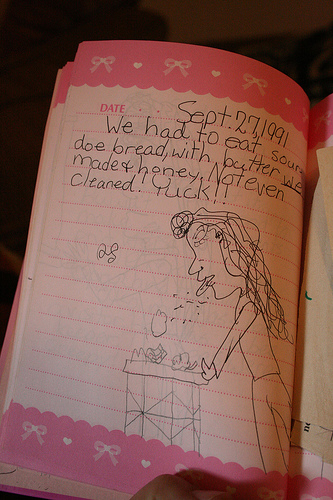“O LORD, how long will you be angry with us? Forever?
How long will your jealousy burn like fire?”
Psalm 79:5 NLT
___
Does anyone else struggle with answering the question “How are you?” I do – It’s kind of a tricky question! I remember awkwardly figuring that out the hard way when “what’s up?” was a popular way to greet someone. Someone was walking the opposite direction as me and nodded hello along with a “what’s up” and I started to respond but then quickly stopped as I noticed the what’s-upper didn’t wait for an answer, he just kept on walking. I’ve had that happen with How-are-youer’s also. It’s one of the top questions I get all day and simultaneously the least answered one.
Before too long, I started wondering how many other questions are socially acceptable to ask but are socially unacceptable to answer [honestly]. How many real conversations are most of us having in any given day if even the standard greeting receives an auto-pilot “I’m great!” response?
And, ever more importantly, how does this standard impact our conversations with God? Is my prayer life also on auto-pilot? Am I censoring my deepest desires, my most painful questions and biggest fears out of prayers? After reading Psalm 79, I quickly realized the answer was unfortunately: yes.
“Oh God, pagan nations have conquered your land, your special possession.
They have defiled your holy Temple and made Jerusalem a heap of ruins.
They have left the bodies of your servants as food for the birds of heaven.
The flesh of your godly ones has become food for the wild animals.
Flood has flowed like water all around Jerusalem; no one is left to bury the dead.
We are mocked by our neighbors, an object of scorn and derision to those around us.
O LORD, how long will you be angry with us? Forever? How long will your jealousy burn like fire?” (Psalm 79:1-5 NLT)
These words are someone’s prayer – someone’s very honest, raw outcry to God in a time of intense suffering. However, as I read it, my thoughts and emotions responded to it as if I were listening to someone ranting on a B.C. episode of Jerry Springer. I remember thinking:
- This author should be much more careful with how he talks to God!! Who does he think he is and what does he think he knows about pain?!
- He’s talking to God as if God doesn’t know all this stuff… God knows everything – why is he doing this?
- “How long will you be angry with us? Forever?” Is this author a teenage girl?
But God quickly revealed to me that my understanding of prayer and conversation with God had been define by my human standards, rather than God’s standards. God calls for us to become like the little children in our faith. This Psalm and this form of prayer is completely transparent and socially unacceptable – just as a child interacts. We are to be as honest as children every time we come to God in prayer.
The Psalmists have it right. While it is true that not every “what’s up?” is sticking around for an answer, God always is. He wants more than the short, socially-acceptable interaction. As a small child, I never censored my conversations with my parents – I screamed when I was angry, I cried when I was hungry and I curled up in their lap when I was tired. I did all those things and more because I never considered that their love was dependent upon my perfection. Why would I offer any less to God, who has clearly stated that his love even greater than that of my parents’?
Challenge: Be honest with God. About every thought, every question, every assumption, every foolish hope or wish, everything. Start by having one completely honest, unfiltered conversation with God a day. When that becomes normal, I will add another, and so on.
___
God, I want to be able to talk to you like you are sitting right here with me. I want to know you. I want to pray like David and the other Psalmists do. I’m sorry for loving you with less than all of me. I’m sorry not believing that your son’s sacrifice would cover my imperfect understanding and conversation with you. Help me to stop putting my lack of perfection between us. Amen.








0 Comments